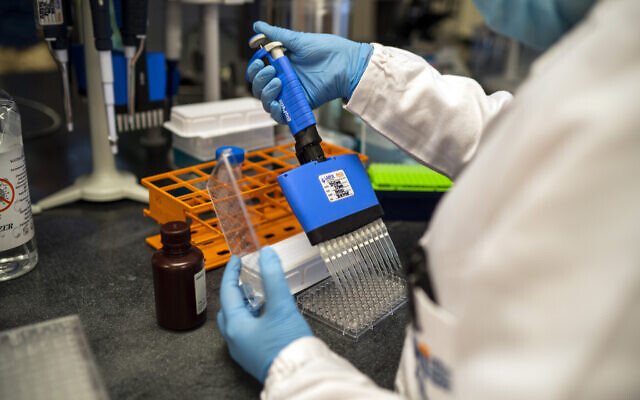A small South African study released Tuesday shows that Omicron infection may enhance immunity against the Delta variant of the coronavirus.
The research, which has not yet been peer-reviewed, initially examined 15 people, some vaccinated and others not, who were infected with Omicron.
The scientists then took samples to see if those people would be able to neutralize Omicron and Delta 14 days later. Two cases were excluded from the study at this stage due to a lack of ability to neutralize Omicron at either the start or end of the research.
Scientists found in the remaining 13 cases a 14-fold increase in ability to neutralize Omicron, as well as a 4.4-fold increase in ability to neutralize the Delta variant of the virus.
The study noted that some of the participants were vaccinated and many were also likely to have been previously infected with an earlier strain of the virus, meaning that the neutralization of Delta could not be definitively attributed to the Omicron infection.
“Participants in this study have likely been previously infected, and more than half were vaccinated. Therefore, it is unclear if what we observe is effective cross-neutralization of Delta virus by Omicron elicited antibodies, or activation of antibody immunity from previous infection and/or vaccination,” the study said.
Scientists at the Africa Health Research Institute in Durban, South Africa, work on the Omicron variant of the COVID-19 virus, Dec. 15, 2021 (AP Photo/Jerome Delay)
Seven of the individuals in the study were vaccinated — three with two doses of Pfizer, three with one dose of Johnson & Johnson, and one with two doses of Johnson & Johnson.
Eleven of the original 15 participants were hospitalized for COVID-19, but none required supplementary oxygen treatment.
The study was led by Alex Sigal, a researcher at Africa Health Research Institute who was born in the then-Soviet Union and grew up in Israel, where he studied at the Weizmann Institute of Science in Rehovot.
“The increase neutralizing immunity against Omicron was expected — that is the virus these individuals were infected with,” Sigal tweeted. “However, we also saw that the same people — especially those who were vaccinated — developed enhanced immunity to the Delta variant.”

South Africa–based virologist Alex Sigal poses in his office at the Africa Health Research Institute in Durban, South Africa, Dec. 15, 2021 (AP Photo/Jerome Delay)
Sigal said that if Omicron causes less severe disease, as researchers are cautiously saying, then the newer variant could help to displace Delta as the dominant strain if those infected with Omicron are then less likely to catch the earlier variant.
“If that’s true, then the disruption COVID-19 has caused in our lives may become less,” he said.
Sigal’s research from South Africa, where Omicron was first identified, has been at the forefront of preliminary understanding about the highly contagious variant.
Eran Segal, a computational biologist from the Weizmann Institute and one of the top advisers to Israel’s coronavirus cabinet, said it was “important” research.
“The expected large number of people infected with Omicron in Israel and around the world may therefore significantly increase the level of immunity of the entire population and help eradicate Delta and at least some of the other variants,” Segal tweeted.

Scientists at the Africa Health Research Institute in Durban, South Africa, work on the omicron variant of the COVID-19 virus, Dec. 15, 2021 (AP Photo/Jerome Delay)
The research came after two studies from Britain published last week showed COVID infections with Omicron are less likely to result in hospitalization compared to the Delta variant, the latest research confirming a trend first identified in South Africa.
The preliminary studies — one paper from Scotland and the other from England — were cautiously welcomed by experts, who nonetheless stressed that any advantage in milder outcomes could still be negated by the new strain’s heightened infectiousness, which may still lead to a greater number of severe cases overall.
Neither of the studies has been peer reviewed, but they add to growing evidence about disease outcomes with Omicron.
It remains unclear whether the decreased rate of severe cases seen with Omicron is because of characteristics of the variant, or whether it appears milder because it is coming up against populations with greater immunity from prior infection and from vaccination.
AFP contributed to this report.